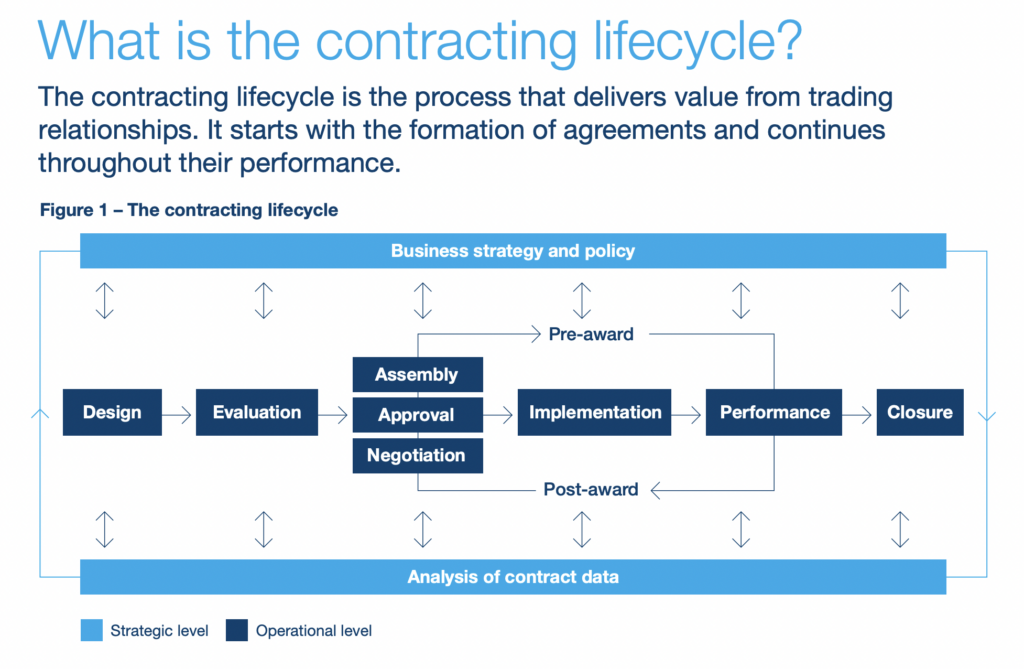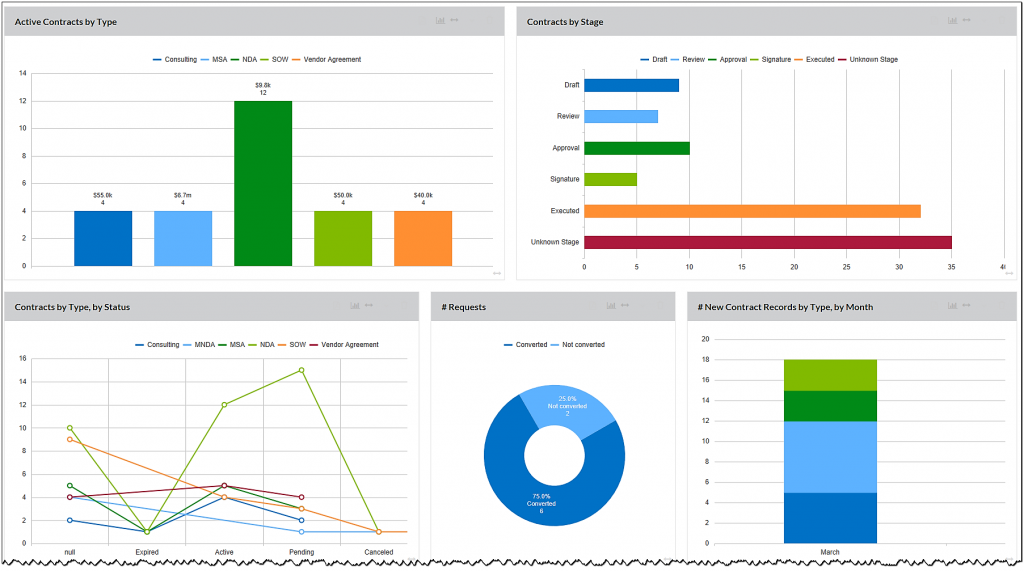How Contract Management Automation Drives Better Decision-Making
Contracts govern the agreements that drive business relationships, impacting all parties involved, including buyers, sellers, vendors, and suppliers. However, traditional methods of managing contracts often result in inefficiencies, missed opportunities, and unnecessary risk.
Contract management automation offers a solution by turning contract data into actionable insights. With features like advanced reporting, analytics, and customizable dashboards, businesses can streamline operations, enhance compliance, and make faster, smarter decisions. Automation transforms contracts from static records into valuable tools for achieving organizational goals.
This article will examine how contract management automation supports better decision-making through data-driven insights, flexible data extraction, and its role as a strategic business function.
Quick Takeaways
- Contract management automation provides advanced reporting and dashboards to uncover trends and opportunities instantly.
- Easily access tailored contract data to meet unique business needs and enhance efficiency across teams.
- Automation transforms contract management into a collaborative function across departments, including finance, procurement, and operations.
- Automated alerts and tools ensure compliance while proactively identifying potential risk before they escalate.
💡Curious about unlocking the full potential of AI in contract management? Don’t miss our guide outlining the 3 Steps for Foundational Contract Management.
The Role of Reporting, Analytics, and Dashboards in Decision-Making
Effective decision-making requires access to timely and accurate information, and contract management automation delivers exactly that. With built-in reporting and analytics tools, organizations gain a clear, real-time view of their contract portfolio. Dashboards provide a centralized platform to track critical metrics such as contract performance, renewal dates, compliance requirements, and financial terms.
Addressing Contract Value Erosion with Automation
According to Deloitte’s “The ROI of Contracting Excellence” report, organizations experience an average contract value erosion of 8.6%. Top performers manage to reduce this figure to just over 3%, while the worst performers face erosion exceeding 20%.
This statistic underscores the importance of leveraging automation tools to close performance gaps and preserve contract value. By utilizing advanced analytics, businesses can identify and address issues before they result in significant losses.
The Power of Dashboards for Real-Time Monitoring
Dashboards not only make it easier to visualize key metrics but also provide automated alerts for upcoming deadlines or potential compliance issues. These tools centralize critical information, giving teams immediate insights into contract statuses and performance indicator
Uncovering Trends with Advanced Analytics
Analytics tools further enhance decision-making by uncovering patterns and trends that manual processes often miss. For instance, recurring delays in supplier performance or opportunities for cost-saving renegotiations can be quickly identified, empowering businesses to act proactively.
By delivering actionable insights and reducing inefficiencies, contract management automation allows businesses to make decisions based on facts rather than assumptions. This level of precision and efficiency drives better outcomes and positions organizations for long-term success.
The Power of Customizable Data Extraction
Every organization has unique data needs, and contract management automation excels at meeting them with customizable data extraction. Instead of relying on rigid templates or pre-set fields, users can specify exactly what information they need and pull it effortlessly from contracts and autopopulate it into their CLM.
Customizable data extraction also helps break down data silos, enabling teams across departments to collaborate more effectively. For instance, a finance team can easily access contract payment terms for budget planning, while a procurement team can pull supplier performance data to inform negotiations.
This flexibility saves time and minimizes errors and ensures consistency in reporting. By delivering the exact data needed for informed decision-making, automation helps businesses stay agile and aligned with their goals.
Expanding Beyond Legal: Contract Operations as a Business Function
Traditionally viewed as a legal responsibility, contract management now plays a critical role across multiple business functions, including finance, procurement, and operations. Automation transforms contract operations into a collaborative effort that drives efficiency and strategic alignment across departments.
Deloitte reports that 78% of organizations have invested in contract lifecycle management systems over the past 5 years, with most investments made in the last year.

This statistic reflects the growing recognition of automation as a vital tool for integrating contract management into broader business functions.
How Finance Teams Benefit
For finance teams, contract management automation provides insights into payment terms, budgets, and potential cost-saving opportunities. Access to this data enables better forecasting and ensures financial operations are aligned with contractual obligations.
Automation in Procurement
Procurement teams use automation to monitor supplier compliance, track performance, and secure more favorable agreements. These tools help streamline vendor selection and maintain strong supplier relationships.
Operational Alignment
Operations teams rely on automation to ensure that contracts align with broader business objectives. By centralizing contract data, automation eliminates silos, enabling teams to work together seamlessly and focus on achieving organizational goals.
By integrating automation into these business areas, contract management evolves from a siloed legal process into a dynamic, organization-wide function that enhances efficiency, collaboration, and decision-making.
The Strategic Advantages of Contract Management Automation
The strategic advantages of contract management automation go beyond operational improvements, offering a significant competitive edge.
- Improved Compliance: Automation enhances oversight by providing alerts for deadlines, expiring agreements, and regulatory changes.
- Faster Decision-Making: With instant access to real-time contract data, teams can respond quickly to opportunities and challenges.
- Enhanced Collaboration: Automation creates a shared platform for managing contracts, fostering transparency and consistency across teams.
- Proactive Risk Management: Automated tools identify potential risk early, helping businesses take corrective actions before issues arise.
By leveraging automation, organizations can turn contract management into a strategic advantage, boosting efficiency, accuracy, and scalability.
Transform Contract Management Today with Contract Logix
Contract management automation empowers businesses with real-time insights, customizable data extraction, and streamlined workflows across departments. By transforming contracts into strategic tools, organizations can enhance decision-making, reduce risk, and improve collaboration.
Ready to revolutionize your contract management process? Discover how Contract Logix can help your organization automate workflows, improve compliance, and make smarter, data-driven decisions. Contact us or schedule a demo today!
Navigate CLM Success With Contract Logix
Download our Data Extraction Product Brief to learn how you can begin to navigate CLM success by automating the hard work using artificial intelligence with one of the best Contract Management Software’s on the market today



